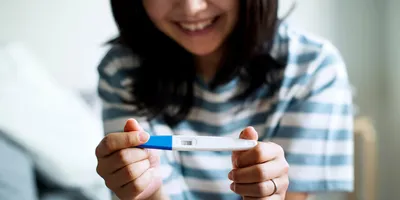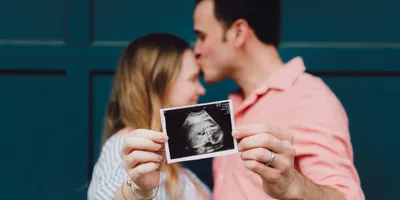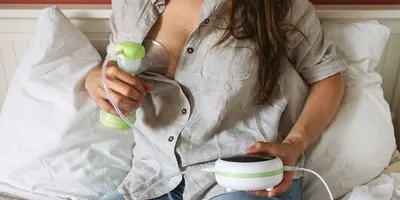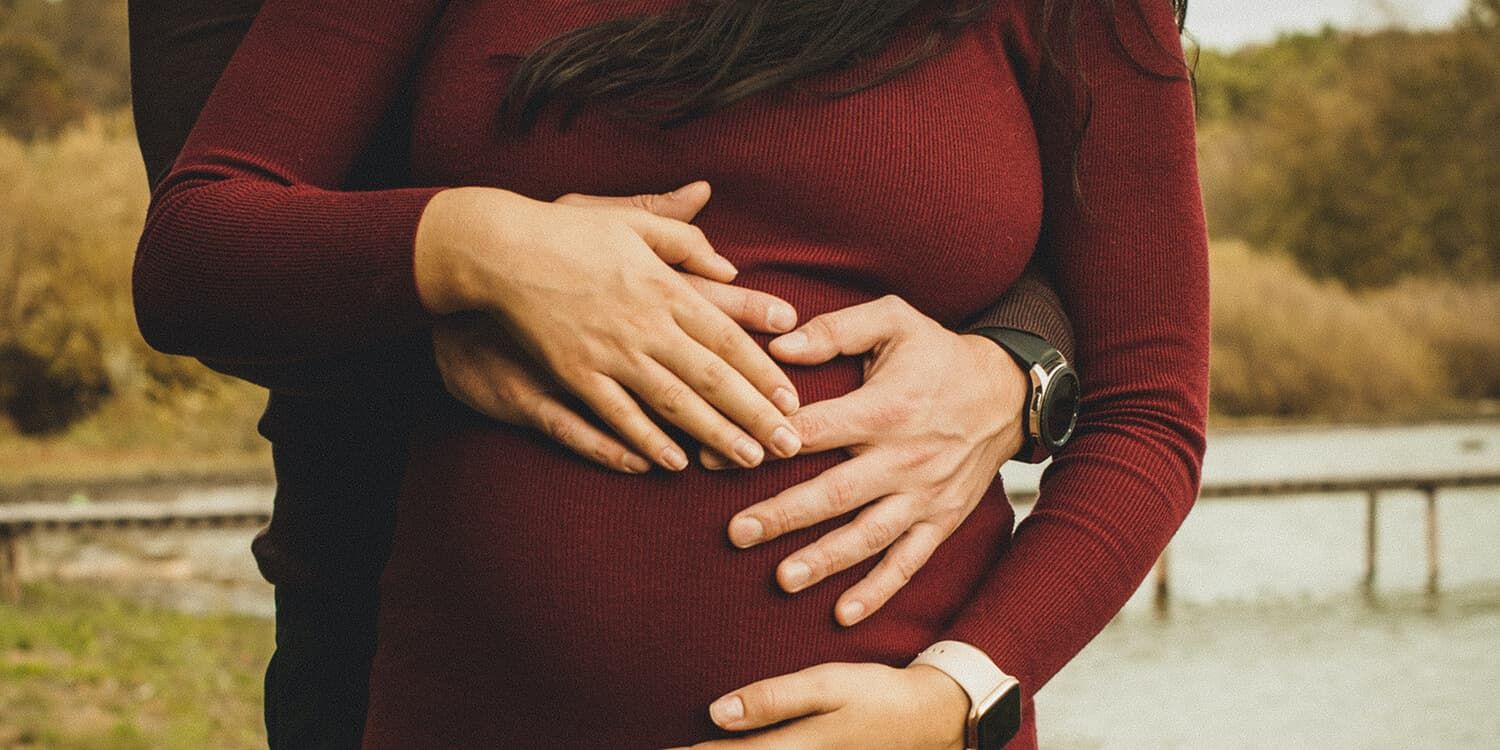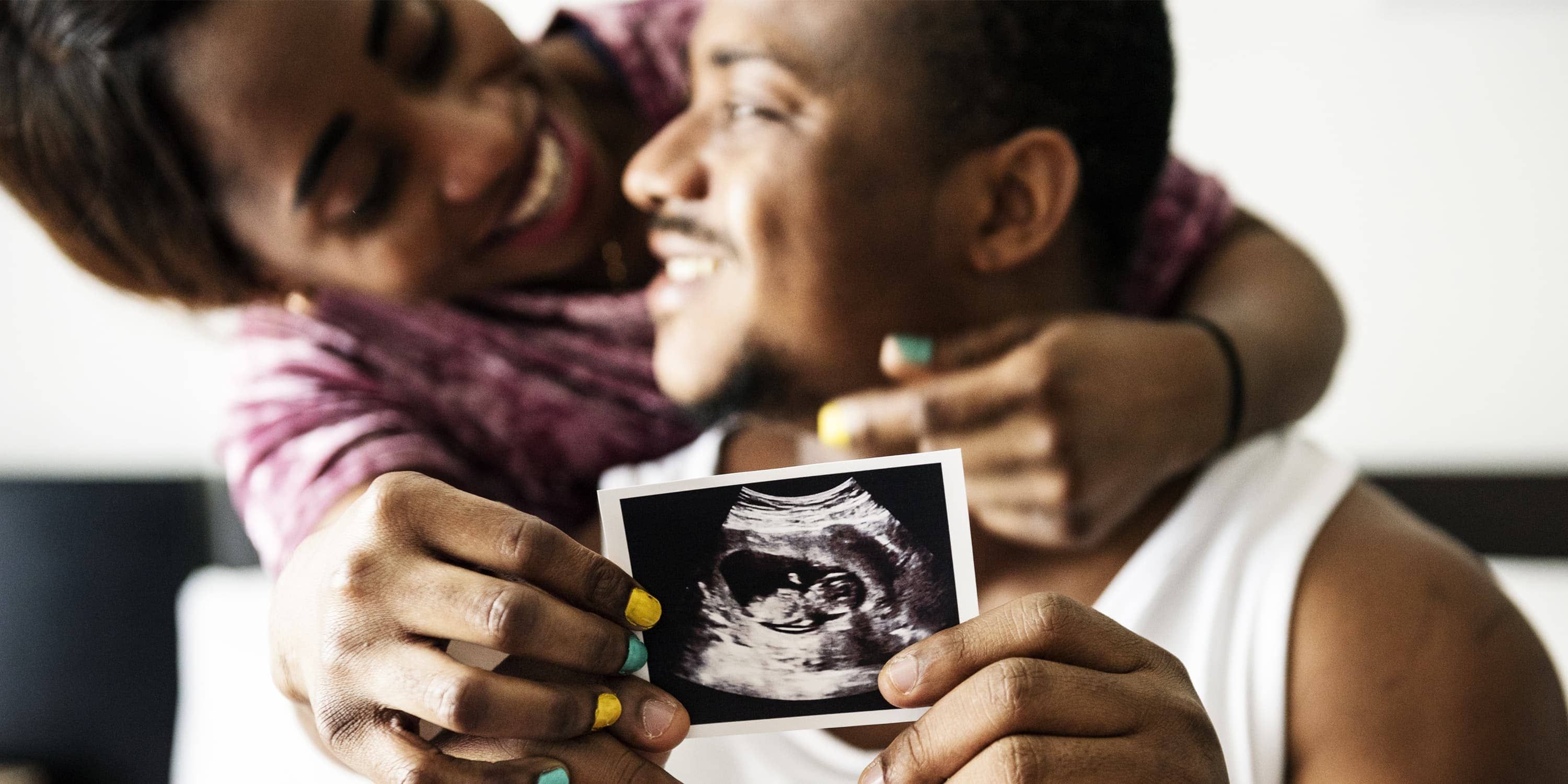You are now five months pregnant and in the nicest stage of pregnancy – at least theoretically. Read on to discover why this is for many mums-to-be, why some still have to cope with morning sickness and what is happening with your baby in the 18th week of pregnancy.
What's going on inside you at 18 weeks pregnant?
The size of the foetus is around 12.5-14 cm (CRL) and it weighs 150-190 grams.
Your baby is moving a lot and is continuing to work on the development of its brain, nerves and muscles. It is also practising sucking its fingers, reaching for the umbilical cord and listening to you. And that's not all: it turns somersaults, yawns, swallows amniotic fluid, opens its mouth and even sticks out its tongue. It is trying out everything. From this point onwards, it grows at an enormous rate, so you may find that you are hungrier than before.
Your baby is now roughly the size of a pomegranate.

The first signs of nipples can be seen, and the milk glands are growing in both boys and girls. In girls, in the 18th pregnancy week the ovaries are now fully stocked with egg cells! This "stock" of 5 million egg cells will last her for her entire fertile adult life. In contrast to sperm, they are not produced on an ongoing basis.
How do you feel at 18 weeks pregnant?
The baby bump isn't getting in the way yet, the hormones have settled down and the pregnancy is proceeding "full speed ahead". Many pregnant women enjoy this period of the second trimester. For others, the morning sickness continues unabated, or new pregnancy complaints appear.
Why are some expectant mothers still suffering from morning sickness?
The reasons for the sickness are unclear or it may have a number of different causes. In early pregnancy it is thought that hormones such as the rapidly rising HCG and progesterone levels cause morning sickness. But in the 18th pregnancy week, there are still around 10% of expectant mothers who are affected by nausea and vomiting.
The blood sugar level may also play a role. Some mums-to-be find it helps to regularly nibble on high-carb snacks, such as a piece of bread, dried fruit or crackers. The circulation can also give rise to nausea and dizziness. This also changes because of the hormones and increasing blood volume.
A lack of sleep and too much stress are other factors that could encourage morning sickness. Of course, this condition is very stressful for expectant mothers. You should discuss with your Midwife or Doctor what can be done for your specific situation. It is only in very severe cases that it may be necessary to administer electrolytes and fluids in hospital.
What can you do about dizziness during pregnancy?
The increased blood volume creates an awful lot of work for your heart and circulatory system. If you get up quickly, you may see spots before your eyes. As well as standing up carefully, the following may help prevent dizziness.
- Drinking plenty of liquids to stabilize your circulatory system
- Eat regularly – always carry little snacks such as fruit, nuts or glucose tablets
- Elevate your legs if you are feeling dizzy. Ideally do this from a lying position, but it helps even when seated
- Make circles with your feet to increase the blood flow
- Take it easy and schedule a little more time to get things done
Photo: Unsplash

